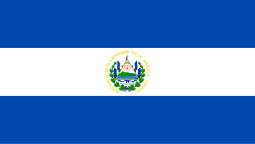“‘He died in my arms’: Young construction worker dies from (with?) severe malnutrition after almost being detained for almost two years”
The following article was recently shared on a Spanish-speaking reddit, with the title “Man dies days after being liberated from one of Bukele’s gulags”.
The featured image shows a severely emaciated young man next to his mother, with the implication that his condition was the result of his imprisonment.
This appears to be only partially true. Some background:
In 2019, El Salvadoran president Nayib Bukele instituted the “Territorial Control Plan”, a set of very heavy-handed repressive law enforcement and incarceration measures in El Salvador to deal with its out-of-control gang violence problems. Gangs known as “Maras”, which at least partially appear to have been founded by refugees from El Salvador’s brutal civil war of the 1980s who turned to crime and who were incarcerated in the US for drug and gang offenses, and then subsequently returned to their home country.
The plan appears to be largely working, at the cost of civil liberties and affecting many innocents who are caught up and imprisoned, often without trial.
Enforcement has been accompanied by several moves by Bukele to consolidate near autocratic power, restrict political opposition, and control media and speech. The plan also seems to have broad support in the El Salvadoran population, despite occasional opposition on legal and humanitarian grounds.
I am not commenting on whether it is "good" or "bad", but it does seem to be working. El Salvador's murder and crime rates have plummeted in recent years. At the same time, extremely repressive prisons have been created with little respect for human rights, due process, or human dignity. Foreign Policy has a good overview:
https://foreignpolicy.com/2025/03/20/trump-deportations-el-salvador-prisons-bukele-human-rights/
The US Trump administration has recently deported mainly Venezuelan deportees to El Salvador, in violation of a judicial order. Bukele responded to objections to this move with the following tweet:
Donald Trump has furthermore mooted the idea of sending people found guilty of vandalizing Teslas and Tesla dealerships to El Salvador for imprisonment.
A comment in the aforementioned reddit thread claims that the man in the linked article, Saul Castillo, was not freed due to malnutrition, but rather terminal cancer - which was at least partially a cause of his emaciated appearance in the photo shared in the article, and the cause of his death. I am not qualified to know whether or not this is accurate.
The comment also mentions that he was not freed due to being acquitted - that said, per the Foreign Policy story above, a large proportion of detainees have not had a trial, so we there is simply no way of knowing whether he was indeed a Mara member, whether he was guilty of some crime, or if he was completely innocent. Again, this is without any any comment on the acceptability of how prisoners are treated in El Salvador.
It is, however, a reminder that no matter how you feel about Trump's treatment of migrants, or El Salvador's approach to crime, prisoners, and human rights, it is important to always check the veracity of media stories, especially surrounding emotionally charged current topics like this.
The elsalvador.com article does not mention the cancer that afflicted Castillo in prison. El Tiempo, a Colombian online publication, has the same story; its title refers to “malnutricion and a tumor”. It isn’t clear from either story whether the cancer was his immediate cause of death, whether it afflicted him as a result of his imprisonment, what significance malnutrition played in his death, and whether he was malnourished in prison or as an effect of his illness.
Both stories do, however, strongly imply a causation between Castillo’s imprisonment and his malnutrition/death. Is that true? I have no idea, but the absence of additional contextual information, plus the context of Bukele’s frankly obnoxious tweet and the harshness, even brutality of the Total Control Plan, makes it very difficult for a casual reader to draw an informed conclusion.
Even partially true stories can be a form of disinformation, propaganda, and media/public opinion manipulation - even if you agree with the gist of what's being conveyed. We should always make sure that what we're sharing is accurate and representative of the truth. And that can be really hard, especially if it’s not in your native language.
Ask yourself, “cui bono”? Is there an agenda? Do I have all the facts? What are my own biases? Disinformation is a disease. Stay vigilant.


